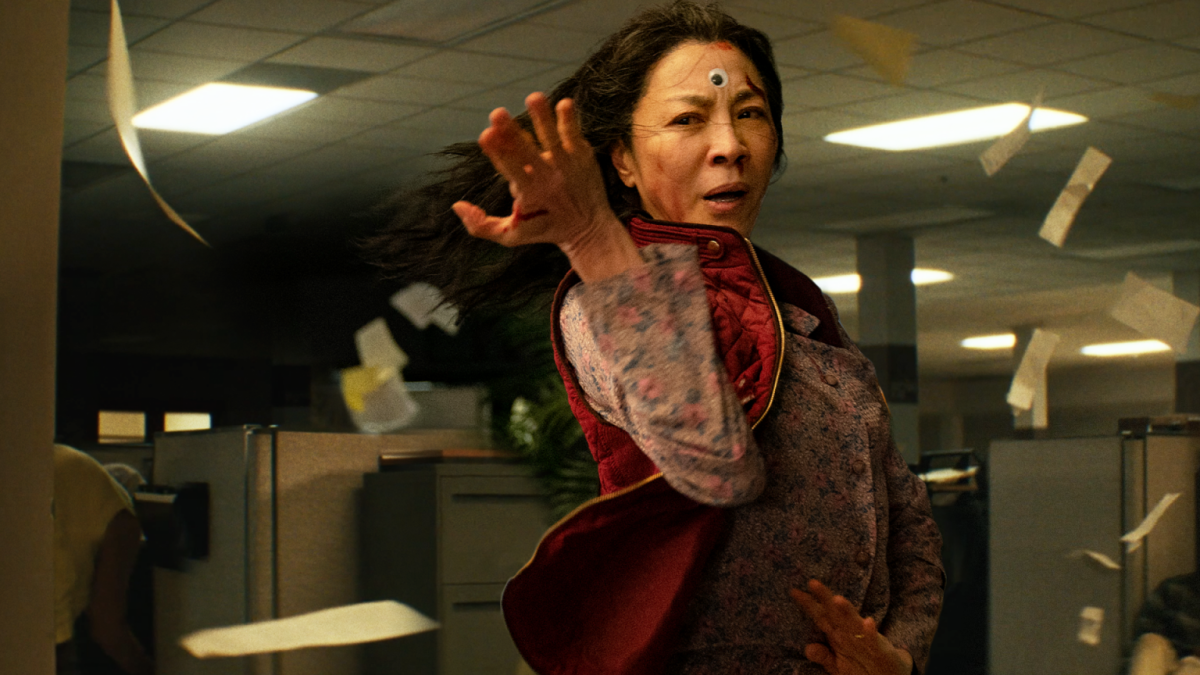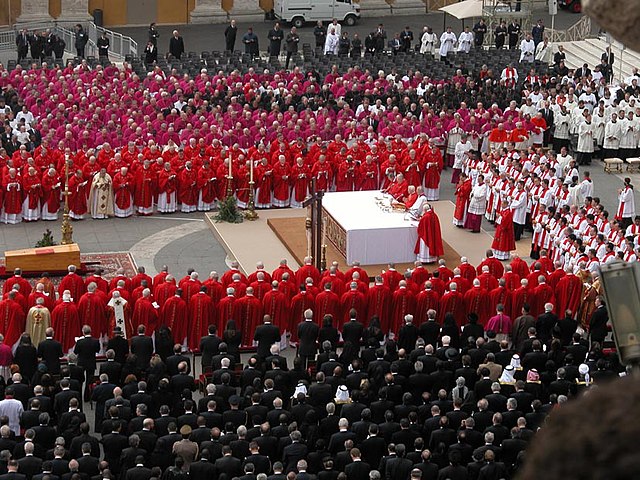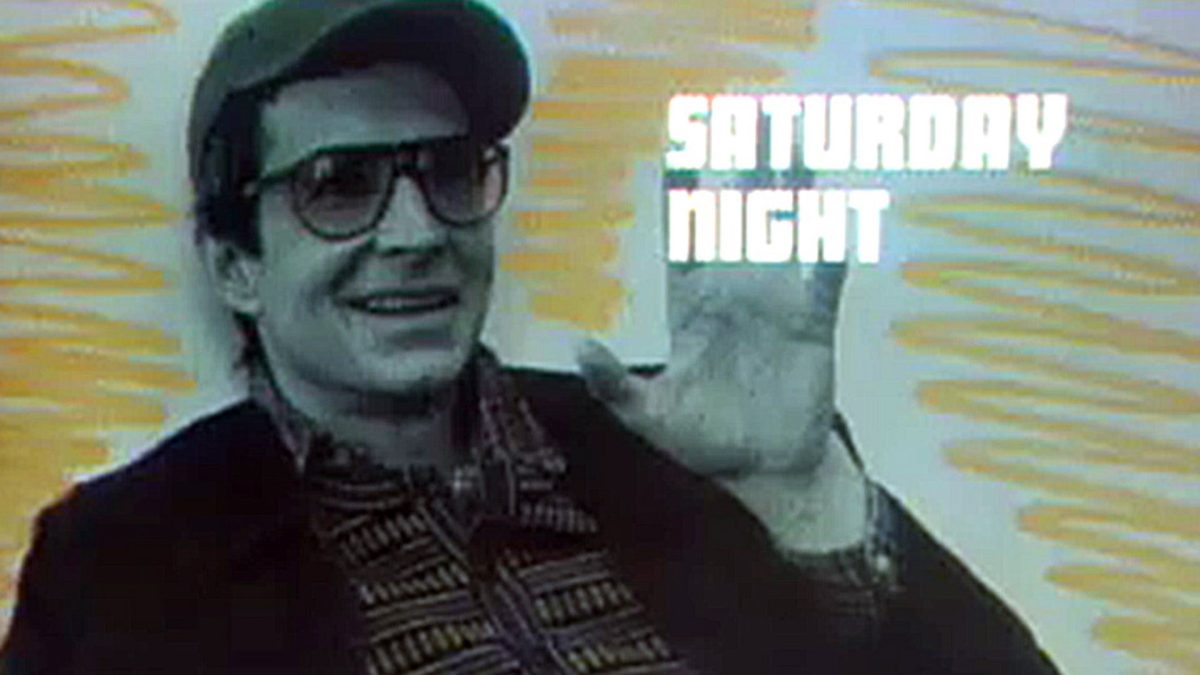Photo courtesy of AGBO
Michelle Yeoh in Everything, Everywhere, All at Once
Almost everyone has felt directionless at some point in their lives. Grappling to find life’s purpose and how to reach your full potential is overwhelming, and “Everything, Everywhere, All At Once” expresses the chaos of navigating endless life decisions masterfully. A genre-bending mixture of science-fiction, martial arts action, and comedy, “Everything, Everywhere, All At Once” centers on Evelyn Wang (Michelle Yeoh), a Chinese immigrant juggling her struggling laundromat business, her familial obligations —and introducing her newly out daughter’s girlfriend to the family.
The down-to-earth tone of the film is upended when Evelyn’s husband, charmingly naive Waymond (Ke Huy Quan), is abruptly possessed by a version of himself from an alternate dimension. The alternate dimension Waymond introduces Evelyn to a concept called “multiverse jumping,”, which becomes the primary mechanic of the film’s plot. To acquire the abilities of her multidimensional selves and defeat the dimension-jumping villain, Jobu Tupaki, Evelyn must renaviagate all of the life decisions that led to her current station — but this new ability threatens to undo her core identity and beliefs about who she truly is. The multiverse jumping throughout the film is the source of its most exciting setpieces, which combine deftly choreographed martial arts fight scenes, comedic detours into absurd alternate realities, and references to other iconic movies through history. Evelyn bounces frenetically between every possible reality, from a sleek, Wong Kar-wai-inspired reality in which she is an internationally acclaimed martial arts actress to a preposterous world where human fingers resemble hot dogs.
The high stakes and energetic pace of the film are balanced by Michelle Yeoh’s sympathetic, grounded performance in the lead role. Despite the dissonant nature of the infinite dimensions she inhabits, Evelyn’s development never feels overshadowed by the film’s sci-fi mechanics. Her journey to overcome her underlying feelings of regret and inadequacy is central to her decisions, and the infinite possibilities presented by the multiverse serves as a symbol of her unrealized potential that weighs on her. The cross-generational conflict between Evelyn and her daughter Joy (Stephanie Hsu), the guilt she feels for choosing a path her parents did not approve of, and the pressure of being a matriarch in a struggling immigrant family are all reflected by the film’s emotionally brimming tone. Ultimately, the film makes a case for compassion and forgiveness as vehicles for realizing the best version of ourselves.
At the Q&A after the film’s screening, Daniel Kwan and Daniel Scheinert, the directors of the film, stated that while making the film, the two things they would never compromise on were the quality of the action scenes and the scenes that make the audience cry. Their distinct, resolute vision have resulted in one of the most imaginative, hilarious, and poignant films in recent memory.







